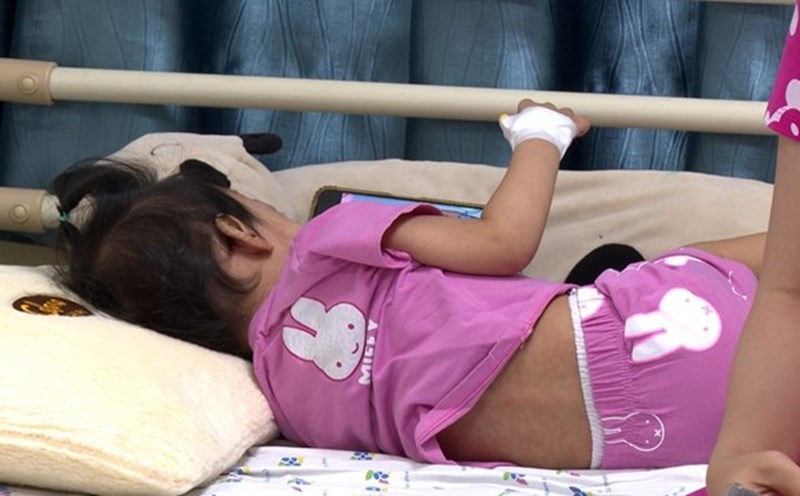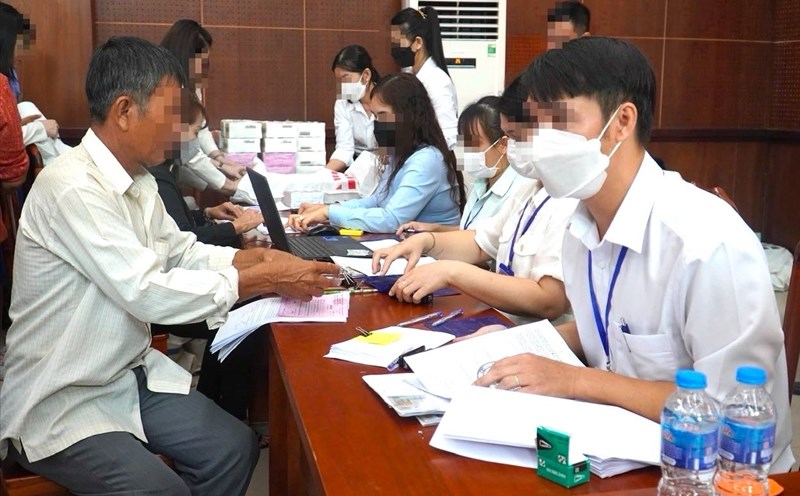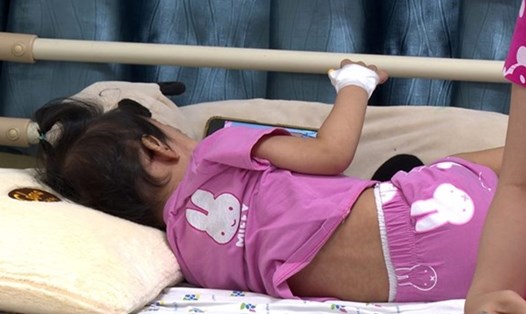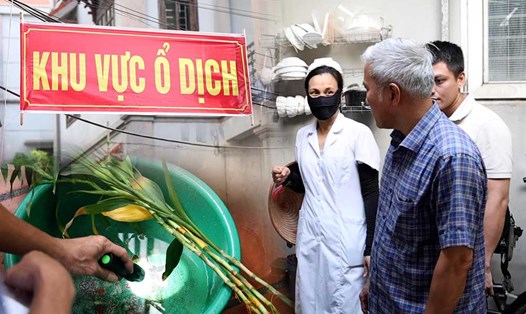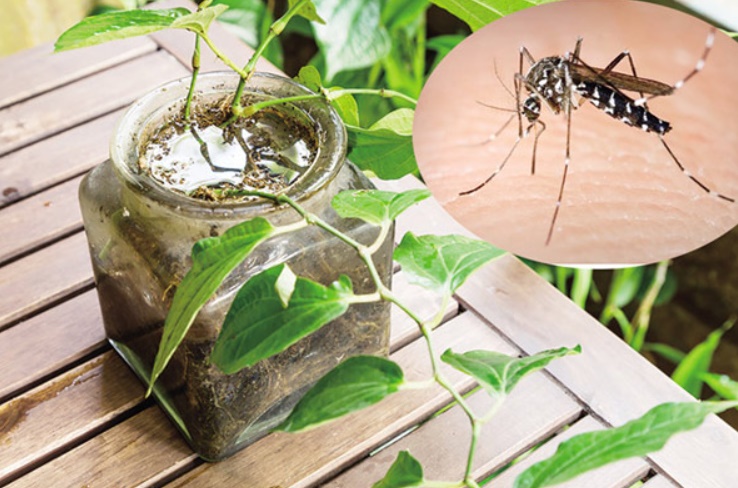
Dengue fever lurks due to heavy unseasonal rain
Although it is the dry season in the South, some areas have experienced unseasonal rain, according to the forecast of the National Center for Hydro-Meteorological Forecasting. According to experts, climate change causes extreme weather patterns such as La Nina to increase the rate of unseasonal rain, causing humidity, creating favorable conditions for dangerous disease transmission medium to thrive, especially Aedes mosquitoes - the main transmitter of dengue fever.
Meanwhile, according to the forecast of the national meteorological agency, the weather in the North will have sunny days in the afternoon, then turn to drizzle and light rain the next day. The temperature will sometimes be over 20 degrees, which is enough for the barbed whale to grow. The North is also entering a period of humidity, with increased air humidity, creating conditions for mosquito eggs to bloom faster.
What is worrying is that the million-ereas eggs can survive in monthly drying conditions and constantly adapt to environmental conditions. Therefore, even during the long dry season or cold weather, the mosquito population still silently maintains and waits for favorable opportunities to breed. The rain creates stagnant water vents and water containers, creating ideal conditions for mosquito eggs to bloom and develop.
For many years, dengue fever has not been a disease unique to the rainy season. According to statistics from the Department of Prevention, in just the first 2 months of 2025, Ho Chi Minh City recorded 4,213 cases of dengue fever, an increase of 125.3% over the same period in 2024, even before the rainy season. The situation in the North of our country is also alarming as during the cold spell in early 2025, Hanoi still recorded 137 cases. Previously, in 2023, Hanoi also recorded double the number of dengue fever cases compared to Ho Chi Minh City - something that had not happened in 40 years.
In addition, at the time of changing seasons, not only dengue fever but people also face the risk of other dangerous infectious diseases, such as influenza and hand, foot and mouth disease. Specifically, in January 2025, Hanoi recorded 820 cases of influenza, an increase of 51 cases compared to the same period last year. Meanwhile, from 24/2/2025 to 2/3/2025, Ho Chi Minh City recorded an increase of more than 62% in hand, foot and mouth disease cases compared to the average of the previous 4 weeks.
New challenges in preventing and combating dengue fever
In a discussion seminar on effective dengue prevention and control measures held at the end of 2024, Prof. Dr. Vu Sinh Nam - Senior Advisor on Dengue Fever, Central Institute of Hygiene and Epidemiology, General Secretary of the Vietnam Preventive Medicine Association, commented that dengue fever prevention and control in Vietnam is still very difficult to completely resolve. The four main challenges listed by the professor include: climate change, development of trade, urbanization and the lack of specific treatment.
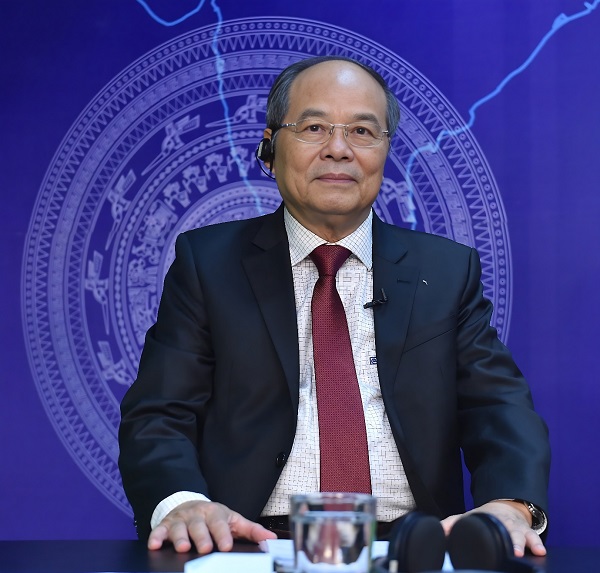
Although Vietnam has applied biological measures such as killing bedbugs and mosquito larvae for many years and achieved certain results, completely eliminating mosquitoes that transmit dengue fever is not a simple task, according to experts.
More worryingly, dengue fever often starts with non-specific symptoms such as fever, headache, muscle pain, easily confused with other diseases, or even without obvious symptoms, leading to delayed diagnosis and increased risk of disease getting worse and spreading rapidly in the community. In addition, the subjective mentality that the disease only appears during the rainy season or only affects one time in life also contributes to a significant increase in the number of infections and severe cases.
Faced with the complicated situation of dengue fever, Prof. Dr. Vu Sinh Nam commented that the vaccine is an important tool in disease prevention. However, he stressed that relying on vaccines alone is not enough, as mosquitoes, ticks and viruses still exist, maintaining the risk of spreading. Therefore, vaccination needs to be closely combined with traditional measures such as mosquito control and the elimination of ticks to ensure long-term and sustainable disease control.
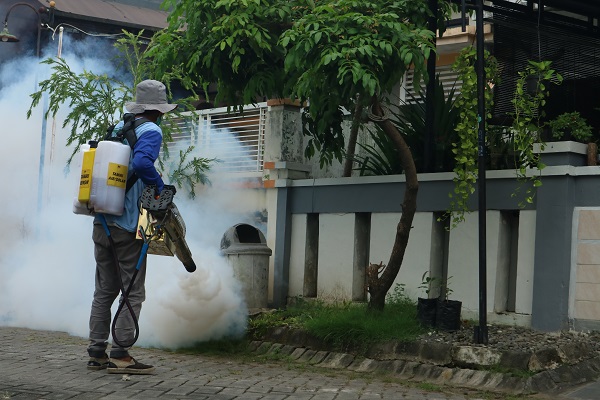
The World Health Organization (WHO) also recommends that dengue vaccination should be integrated into the overall disease control strategy. This strategy includes vector control, effective case management, raising awareness and encouraging active community participation. In particular, comprehensive vector control still plays an important role, because mosquitoes that transmit dengue fever not only cause danger to Dengue virus but also spread other dangerous diseases.
It is forecasted that in 2025, dengue fever and other infectious diseases will continue to develop in a complex manner, becoming a major challenge for global health. The synchronous combination of measures will help reduce the spread of dengue fever, while ensuring effectiveness and sustainability in disease prevention.
This information is only for the purpose of providing information to the public; should not be used to diagnose or treat a health problem or disease; and should not replace consultation with a doctor. Please consult a doctor for further advice.
The content is provided by Takeda Pharmaceutical Company Limited, approved by the Vietnam Preventive Medicine Association in terms of expertise". C-ANPROM/VN/NON/0005, March 2025

